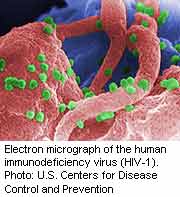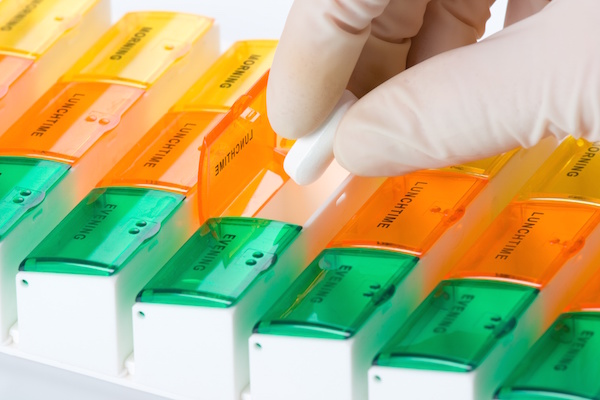
WEDNESDAY, July 15, 2015 (HealthDay News) — Someone’s genetic makeup may determine whether an HIV vaccine will work, a new study suggests.
Scientists say the finding could help them find a way to immunize people against HIV, the virus that causes AIDS. While researchers have reported advances over the years, a working vaccine still seems far off.
Genetics are “almost certainly” relevant to how well vaccines work, but “vaccine designers have so far sought a single vaccine for all, for the most part,” said study co-author Daniel Geraghty, a scientist with the Fred Hutchinson Cancer Research Center in Seattle. “That approach isn’t going to work for a lot of vaccines.”
In the new research, scientists analyzed results of a vaccine trial in Thailand that concluded in 2009. Over 42 months, the vaccine protected against HIV infection 31 percent of the time.
The new analysis revealed that the vaccine was effective only in people with a specific gene variant. In others, the vaccine appeared to raise the risk of infection.
To better understand this discrepancy, the researchers zeroed in on 760 study participants. Those with a specific genetic variation were protected 71 percent of the time, they found.
“The gene identified in this study is one of those that has long been known to be directly involved in the immune response to infection,” said Geraghty, president and CEO of Scisco Genetics. It’s essential to a process that helps cells tell the immune system if they’re healthy or infected, he explained.
The genetic variation is common, he added.
Meanwhile, another genetic variation — one the researchers say is more common in the general population than in Thailand — made infection more likely.
The scientists believe the research represents a promising step.
“This should be studied further to try and determine how the vaccine may have worked and how we might be able one day to predict such protection, and design more effective vaccines from the beginning,” said study co-author Rasmi Thomas, a principal investigator with the U.S. Military HIV Research Program.
Dr. Susan Buchbinder, director of the Bridge HIV research unit with the San Francisco Department of Public Health, praised the study. It should generate new theories about how vaccination may affect HIV transmission, she said.
“The results appear to be valid,” said Buchbinder, who was not involved in the study. However, she cautioned that the findings will need to be confirmed in a new study with different participants.
Will people eventually undergo genetic testing to determine which HIV vaccine they should get? There’s disagreement about this point.
Geraghty said genetic testing is inexpensive and could be used to match people to vaccines.
But Buchbinder questioned the idea of developing different vaccines for people with different genetic makeups. Ultimately, she said, the goal is to develop vaccines that work so well that it doesn’t matter if people have different immune responses based on their genes.
This particular study “may help us to understand more fully those immune responses that are helpful or harmful in HIV acquisition, and may guide development of future vaccines,” she said.
Next, Geraghty said, scientists need to learn more about how genetic variations affect vaccine effectiveness. “This essential detail is at the core of the immune response and is a key component of what distinguishes us from one another in our capacity to resist infection,” he said.
The study was published July 15 in the journal Science Translational Medicine.
More information
For more about HIV vaccine research, see the U.S. National Institute of Allergy and Infectious Diseases.
Copyright © 2026 HealthDay. All rights reserved.

